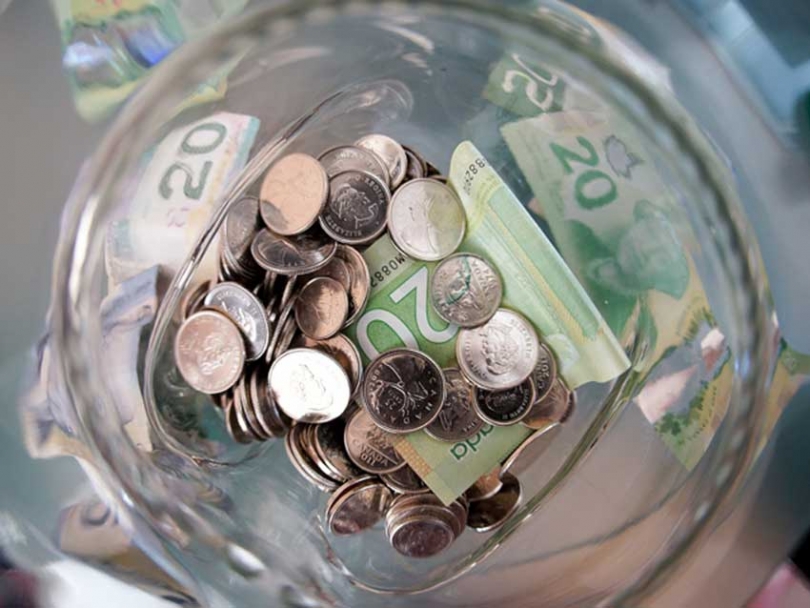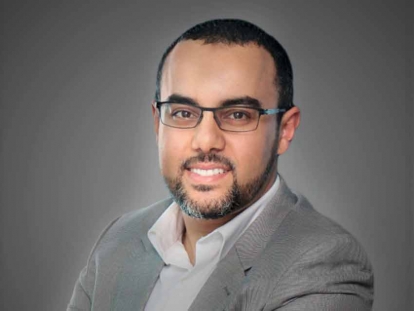 Investment Options for Your Halal Tax Free Savings Account (TFSA) in Canada
Investment Options for Your Halal Tax Free Savings Account (TFSA) in Canada
May
Investment Options for Your Halal Tax Free Savings Account (TFSA)
Written by Sawitri MardyaniOne of the best tools for savings and investment we have in Canada is the Tax Free Savings Account (TFSA). You might have received calls or emails from your bank about it or maybe you’re heard about it compared to a Registered Retirement Savings Plan (RRSP).
What is it, really? Is it halal?
The TFSA is basically a special type of bank account where you can save and invest your money. Although the name has "Savings Account" in it, and savings accounts generally give you some amount of interest (which is not permissible in Islam), a TFSA is more than a regular savings account.
You can make your TFSA halal by putting your money in halal investments. This way, you not only benefit from having the money saved, but you can also put your money to work for you and get some investment income without paying any tax on it.
In a regular investment account, any profit you get must be reported as income each year and you have to pay tax on it. In contrast, the TFSA is a tax-sheltered account, so whatever money you make through the investments you have in the TFSA is tax free.
Unlike an RRSP, you don't even pay taxes when you take that money out of your TFSA. Also unlike an RRSP, which is meant to be for retirement, you can also take money out of your TFSA at any time without penalty.
TFSAs started in 2009. The contribution limit for the TFSA in 2017 is $5,500. You can, however, carry over unused contribution amounts from previous years. If you were over 18 in 2009 and haven't yet contributed into the TFSA, you could put in as much as $52,000 and invest it tax-free. (update January 2019: The contribution limit in 2019 is $6000 and if you were over 18 in 2009 your cumulative limit is $63,500)
If you were to get just a 5% return on that $52,000 investment, that would mean getting $2600 tax-free at the end of the year—without working any extra hours or doing any additional work.
What if you don't have $52,000? That's ok. If you invested just $1,000 with a 5% return, you'd still get an extra $50 at the end of the year. Sure, it might not be enough to take a vacation with, but do you really want to walk away from $50?
Right. So if you have money to save, it's a good idea to invest it in a TFSA.
What investments can you have in your TFSA?
The investment options for a halal TFSA are the same as those for a halal RRSP. If you want to have a halal TFSA, you need to invest in Shariah compliant stocks and mutual funds.
Stocks give you partial ownership in a company. If that company does well and makes profit, as a shareholder you could receive a share of those profits in the form of dividends. If the company's stock becomes very popular and people are willing to pay a high price for it, you could also make money by selling your share of the company for more than you bought it for.
A financial advisor who knows about Shariah compliant investments can help you build a halal TFSA.
If you want to take a do-it-yourself approach to investing, or don't have enough investable assets to warrant a financial advisor, you can open a self-directed TFSA account and choose for yourself which stocks you want to invest in. You don't even have to learn the details behind how to find halal stock market investment options and simply use an app like the Islamic Investor by IdealRatings or Finispia to guide you. With a self-directed TFSA, you can buy and sell stocks online for less than $10 a trade.
But what if you don't know which halal stock to invest in?
This is where mutual funds come in. A mutual fund contains a group of stocks chosen by a mutual fund manager. When you invest in a mutual fund, you're investing in all of those stocks at once. Diversifying your investments into many different stocks helps to reduce risk.
One drawback of mutual funds is that you don't have control over which stocks you are invested in. When you invest in a mutual fund, you invest in every stock that it contains. If there are some companies in there that you're not comfortable with—you either invest in that mutual fund and live with that discomfort or you don't invest in the mutual fund at all.
The second drawback of mutual funds are that they come with fees and expenses. There are costs associated with running a mutual fund, such as transaction costs, investment advisory fees, and marketing and distribution fees. These costs are paid for by the mutual fund holders through various fees associated with the fund.
The longest running Shariah compliant mutual fund available in Canada is the Global Growth Assets Inc.'s Global Iman Fund, which has been in operation since 2009. Its top five investments as of March 31, 2017 are Microsoft Corp, Apple Inc., Alphabet Inc., Johnson & Johnson, and Tencent Holdings Ltd.
Another TFSA investment option is Wealthsimple's Halal Portfolio. Launched in August 2017, Wealthsimple offers investment accounts with no minimum investment, low fees, and an easy to use online interface.
Keeping it halal
One of the challenges of investing in Shariah compliant stocks is that it is possible for the status of a company to change from being compliant to being non-compliant. It's like when you go out to eat at a restaurant and they change the menu or the management. A meal that you might have eaten there before could now have non-halal ingredients in it. You need to be vigilant if you want to eat halal.
In the world of stock market investing, the concern isn't about food ingredients, but the business activities a company is engaged in and the finances behind those activities. For example, an information technology company might shift or expand its operations and start doing some work in artificial intelligence. If they develop that artificial intelligence into a product that is used as a weapon in war, the company's stock may no longer be halal.
Even if its business activities don't change, a company may also lose its Shariah compliant status simply because its stock price drops.
One of the requirements for Shariah compliance is that a company can't carry too much interest-bearing debt. According to some Shariah scholars, a company's debt to equity ratio can't be more than 33%. This means that the amount of debt they carry can't be more than one third of the value of their shares.
If a Shariah compliant company has a debt to equity ratio of 31% and one day, its stock price goes down by 9%, then it's debt to equity ratio becomes 34%—it’s not Shariah compliant anymore. The same thing could happen if a company decides to take on a large loan. That could also cause its debt to equity ratio to go beyond the 33% threshold.
If this seems too much to worry about, there are some TFSA eligible stocks and funds that either don't have any interest-bearing loans at all or are strictly invested in halal assets.
Completely interest-free investments
For example, Ansar Financial and Development Corporation is the first North American Shariah Compliant Public Company that has shares traded at the Canadian Stock Exchange under the symbol AFD. This company has purchased rural land in Alberta using capital from their shareholders (many companies that purchase property do so with interest-based loans or mortgages). When you buy a share of AFD, you become a part owner of that land. When they sell some of this land and make a profit, that profit is shared amongst the shareholders in the form of dividends. In 2015 and 2018, they issued dividends of $0.03 per share. Shares were issued by the company in March 2010 at a price of $1.00 per share
Bullion Management Group has mutual funds that are based solely on holdings of gold, silver, and platinum. When you purchase their mutual fund, you are in effect purchasing a portion of gold, silver or platinum that is kept in the vaults of the Scotiabank building in downtown Toronto. The value of your investment will go up and down according to the market value of these precious metals.
SPDR Gold Shares (GLD) is also a convenient way to invest in gold. It is an exchange traded fund (ETF), which tracks the value of gold by holding physical gold in vaults in London and around the world, which has been certified as Shariah Compliant according to the Accounting and Auditing Organization for Islamic Financial Institutions (AAOIFI). ETFs generally have lower management expenses than mutual funds.
We’ve covered six different investment options for your halal TFSA:
Get help from a financial advisor who knows about halal investing.
Invest in individual stocks yourself.
Invest in mutual funds, such as the Global Iman Fund.
Invest with an online advisor that has a halal portfolio, such as Wealthsimple.
Invest in land through Ansar Financial and Development Corporation.
Invest in precious metals through Bullion Management Group or SPDR Gold Shares (GLD) exchanged traded fund.
You can choose any or as many of these options as you like and you can even have multiple TFSA accounts with different financial institutions as long as you don't exceed your contribution limit. With these options and the tax free and flexible savings offered by the TFSA, Muslims have a great opportunity to save, invest, and earn tax-free and halal income.
This article was updated on January 11, 2019 to include updated information about the TFSA limit; a link to the Financial Services section of Muslim Link's Directory; a link to the halal stock finder app, Finispia; information about Wealthsimple’s halal portfolio; updates about Ansar Financial Development’s 2018 dividends; and SDPR Gold Shares’s GLD ETF as a means of investing in gold.
Note: With any investment, there is a possibility of profit as well as loss. To mitigate losses, it's good to diversify your investments and not put all your eggs in one basket. A financial advisor can also help you choose investments that are in line with your principles, goals and risk tolerance.
This article was produced exclusively for Muslim Link and should not be copied without prior permission from the site. For permission, please write to info@muslimlink.ca.















